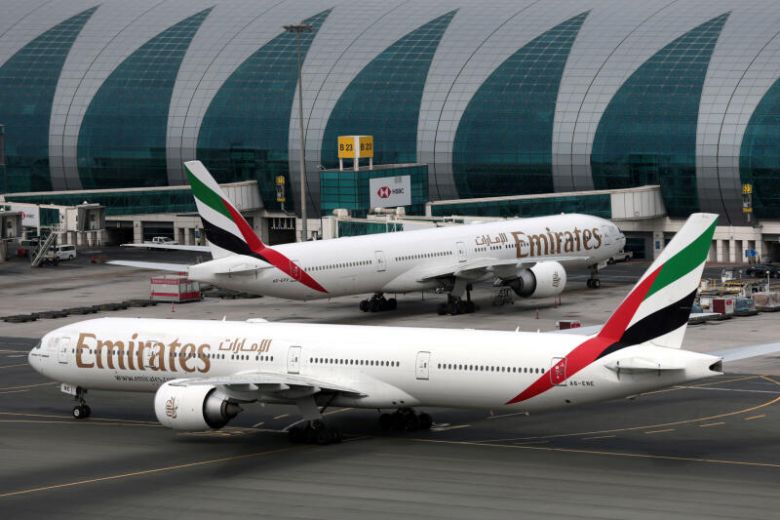Emirates to ground entire passenger fleet and cut wages
By Alexander Cornwell
Emirates, one of the world’s biggest international airlines, will ground its entire passenger fleet this week and cut staff wages by as much as half because of the coronavirus and its impact on travel demand.

The state-owned Dubai carrier had already announced the suspension of nearly 70 percent of its network, asked staff to go on unpaid leave and frozen recruitment as the industry faces one of its biggest ever challenges.
“As a global network airline, we find ourselves in a situation where we cannot viably operate passenger services until countries reopen their borders and travel confidence returns,” Emirates Chairman Sheikh Ahmed bin Saeed al-Maktoum said in a statement.
The Dubai-based airline will stop passenger flights by Wednesday and did not say when they would resume, though cargo flights will continue.
International connectivity is crucial for Emirates’ Gulf hub model, which transformed Dubai six years ago into the world’s busiest international airport. It does not operate domestic flights and most of its passengers transit through Dubai.
Emirates Group, a state holding company that includes the airline among its assets, will enforce a temporary 25 percent to 50 percent reduction in basic salary for the majority of employees.
Emirates President Tim Clark, who is due to step down in June, and Gary Chapman, president of the holding group’s airport and travel services company, will forgo their basic salaries for three months.
“We want to avoid cutting jobs,” Sheikh Ahmed said.
“When demand picks up again, we also want to be able to quickly ramp up and resume services for our customers.” Reuters






